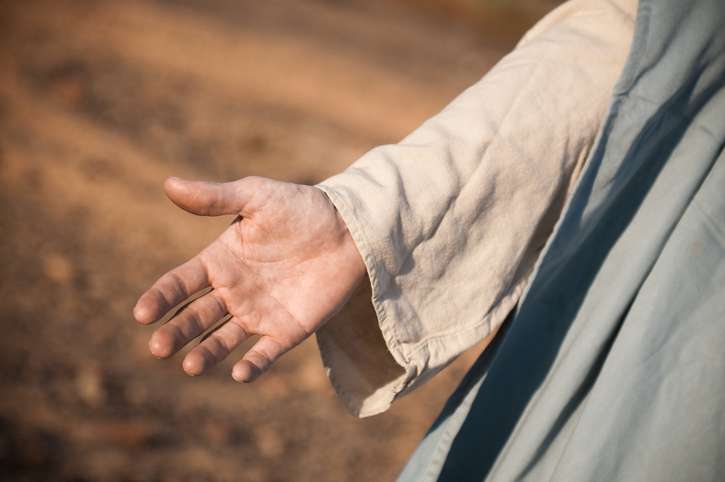Growing up, I remember what seemed to be a more common sight than today when watching sports on television. It was not at all uncommon to see someone in the stands holding a sign that read “John 3:16.” The words of John 3:16 are given to us for this Fourth Sunday of Lent, Laetare Sunday. John is recounting for us a conversation between Jesus and Nicodemus. Nicodemus is a Pharisee and a respected member of the Sanhedrin. Later in John’s Gospel, Nicodemus will caution the elders not to rush to a hasty judgement concerning Jesus and his ministry without attempting to understand his words and actions.
Before Jesus expresses to Nicodemus the words that we have come to know from John 3:16, he implicitly centers the conversation on the impending mystery of the Cross. Jesus refers to an event concerning Moses and the Israelites that is recounted in the Book of Numbers. The people grumbled against God, so God sent poisonous seraph serpents into their camp causing many to die. Moses interceded on behalf of the people and God, in response, commanded Moses to fashion a bronze serpent and to erect it on a pole and anyone who looked at it would be healed of the poison of the serpents. This lifting up of the bronze serpent prefigures the lifting up of Jesus on the Cross so that whoever looks upon Jesus in faith will be saved from the poison of the original serpent given through the bite of the sin.
This brings us to one of the most beloved phrases in all of the Scriptures:
For God so loved the world that he gave his only Son, so that everyone who believes in him might not perish but might have eternal life.
The concept of “the world” in the Gospels is many times equated with darkness and opposition to God, but we hear in this discourse from Jesus that, even though the world is covered in darkness and steeped in sin, God still loves the world. In the mystery of the Cross and Christ crucified we see God’s ultimate judgment on the world: not condemnation and wrath but love and mercy.
We must remember that this love and mercy are not irresistible. We must have hearts and lives that are open to receiving these gifts of God’s goodness. Jesus is the light that has come into the world and we must not be afraid to approach him.
The light that he gives exposes our sinfulness, but only so that we might confess it and choose his love and forgiveness as a remedy for it.
Sadly, there are many people who cannot bear the light, who are unwilling to acknowledge their own sinfulness and their need for a savior. They prefer to remain in the darkness with a false sense of fulfillment and happiness, neither of which can truly exist apart from a real and lasting relationship with God.

This Fourth Sunday of Lent is known as Laetare Sunday, a Latin command to rejoice! We are called to rejoice because our Lenten journey is now more than half over and the joy of Easter fast approaches. We are called to rejoice in the depth of God’s love for us which is fully revealed through the Passion, Death, and Resurrection of Jesus which we will soon commemorate. As we continue our Lenten journey, let us be mindful of why we are fasting, praying, and giving alms.
All of these practices should be responses of a heart that is grateful to God for the mercy that he has shown to us and marks of a desire for continued conversion.
Let us look upon Christ crucified with eyes of faith and hearts open to his saving grace. As with Moses and the seraph staff of old, so now with our crucified Lord: look with faith and live.
Father Christopher House is the Rector-Pastor of the Cathedral and serves in various leadership roles within the diocesan curia, specifically Chancellor and Vicar Judicial.